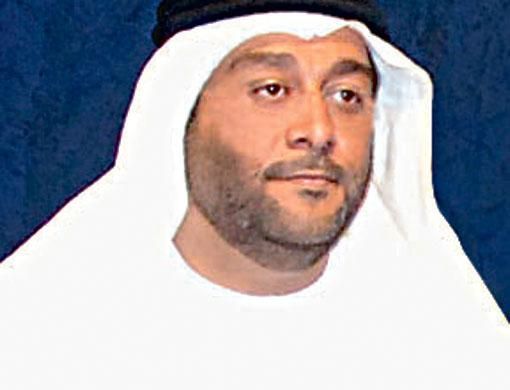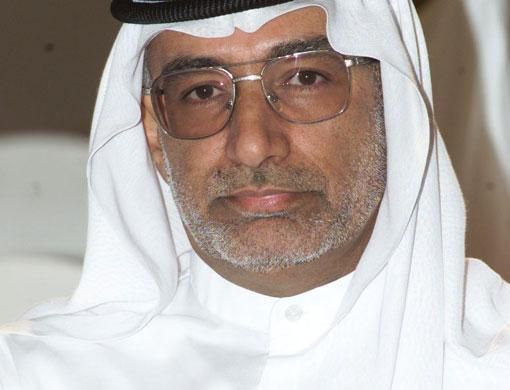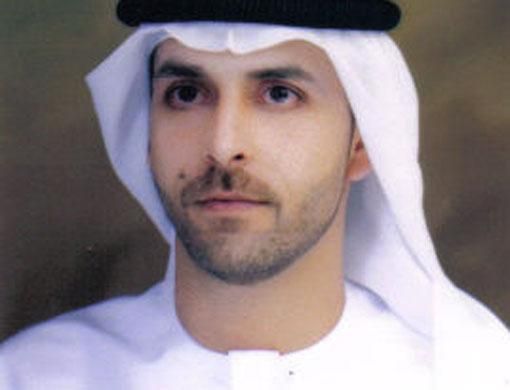Abu Dhabi: It is not only journalists but the whole society which is responsible for pushing for freedom of the press, said a senior professor of political science.
"Some journalists say the general environment does not support press freedom, but someone has to push the envelope to change things," Dr Abdul Khaleq Abdullah, professor at the UAE University, said.
Speaking to Gulf News on the eve of World Press Freedom Day, he said that as the UAE is one of the leading countries in the region, Emiratis should accept no less than being number one in press freedom and in pushing for human rights.
May 3 has been designated by the UN as World Press Freedom Day to raise awareness about the importance of freedom of the press and to remind governments of their duty to respect and uphold the right to freedom of expression enshrined under Article 19 of the Universal Declaration of Human Rights.
Dr Abdullah feels that some journalists are still intimidated by the government. "This comes because of the practices of the past," he said, when there have been some bans and pressures put on newspapers.
"The government now is not afraid of criticism. I am optimistic because society has changed. We now have public opinion which is more open, freer elections and enlightened elite. The rulers are also more open-minded," said the professor.
Mohammad Al Hamadi, a writer for Al Ittihad newspaper, feels the freedom of the press here has its ups and downs. "It all depends on the personal efforts taken by the editorial management in the newspapers. Sometimes the Editor-in-Chief acts strongly and uses his authority to voice sensitive issues. When such an authority is not used, the level of freedom becomes shallow," he said.
Al Hamadi feels that columnists enjoy more freedom. "From my experience as an opinion writer, I was able to write about issues I wasn't able to write when I was a journalist," he said.
"I think that is because the columnist or writer takes legal responsibility for his work, while the newspaper, the journalist, a section head, an editor or the Editor-in-Chief are responsible for the stories."
He said that he is looking forward for more freedom as "rapid development, an open society with its multicultural components requires more freedom as nothing can be hidden now."
Experience counts
Al Hamadi thinks that the level of freedom is not defined clearly. "By experience a journalist figures out what to write and what not to write, especially when they don't get instructions either from the editors or the authorities."
A journalist with Elaph.com, an online daily newspaper, feels that the level of freedom is related to the ownership of the publication.
"Government newspapers have less freedom because of governmental support. Editors of such publications have to avoid the threat of closure and the withdrawal of the publishing licence," said Taj Al Deen Abdul Haq.
But he said it was a fact that the government does not interfere in the daily work of newspapers. "But just knowing that its licence is dependent one way or another on the government, makes editors exert self-censorship," he said.
On the other hand, Abdul Haq looks at the issue from an economic point of view. "People here are criticising the government less through the media because they are living a good life. The press here is not a pressure tool on the government as happens in others countries," he said.
Rashid Al Orimi , Editor-in-Chief of Al Ittihad newspaper, said freedom of the press is the responsibility of the journalists themselves.
"We have not yet examined what this freedom is," he said. "Everything said about it is just expectations. He pointed out those who have banned from writing in his publication was due to their unprofessional behaviour. "I don't agree that there is a lack of freedom here. Where is the evidence," he said.
"I think people are enjoying freedom and are used to it and now are longing for something even more amazing."
Abdul Rahim Al Bateeh, director of local news at Abu Dhabi TV, said no one gives the station instructions what to do or not to do."The government trusts the journalists and the media policy is known to everyone. "
"Maybe as a broadcasting station it is easier for us to be freer than newspapers. Although we enjoy a huge amount of freedom, we always look for more," he said.
Nasser Al Daheri, a columnist with Al Ittihad newspaper for six years, said he got his freedom after paying the 'price' over the past years. "Nobody now gives me instructions what to write and what not to write," he said.
"I'm devoted to my home land and I always stand by citizens and their needs. I may stop writing if this doesn't suit the newspaper."
UAE Code of ethics
In October last year editors of Arabic and English language newspapers in the UAE adopted a Code of Ethics that details responsibilities of newspapers to the public right to information.
Mohammad Yousuf, Chairman of the UAE Journalists Association, said the Code of Ethics was important because it would inform journalists of their rights and responsibilities.
"Signing this Code does not mean that local media is lacking in anything, but it clears the clouds for journalists," he said. Lieutenant General Dahi Khalfan Tamim, Dubai Police Chief, earlier warned that because journalists cannot be jailed does not mean that they are not liable for damages inflicted on others.
Decree hailed
The International Federation of Journalists (IFJ) welcomed a decree by the UAE that journalists should not be jailed for their work.
The decree "sets a precedent for the decriminalisation of media law in the region.
"We hope that the UAE will serve as a model in the region and that other countries will follow suit with similar changes in their own laws," said IFJ General Secretary Aidan White.
The Arab Journalists Union also lauded the decision of the UAE not to jail journalists, saying it is optimistic and added that it will provide support for freedom of expression "amid pessimism in the Arab World."
Press laws
The Federal Law No. 15, 1980 is a 6000-word document which details every aspect of the press and publications, the cinema and theatre plays in the country. It covers everything from ownership of a newspaper to material which violates religious morals or values of the state and society. Article 29 says that newspaper owners and chairmen of boards of journalistic establishments and news agencies shall not appoint editors or writers on a permanent or temporary basis, unless they are registered with the information department in the ministry. Article 30 mentions that foreign correspondents are prohibited to practise their job in the country unless they are licensed by the proper authority in the ministry. Licensing shall be for one year, which can then be renewed.
Do you think the press is free? Do you feel journalists are brave enough to exercise freedom of expression? Why is free press so important?
Tell us at letter@editor@gulfnews.com
Your comments
As a journalist here it is very frustrating to be told what to write. This applies to companies here where no-one is allowed to say anything the slightest bit negative. Lots of companies here also insist on checking the article before it goes to print to ensure that there is nothing negative. The government is very supportive, but companies here need to also understand that not everything can be 100 per cent perfect all of the time, and sometimes we need to write the truth.
J.J.
Dubai,UAE
Posted: May 03, 2008, 10:40













